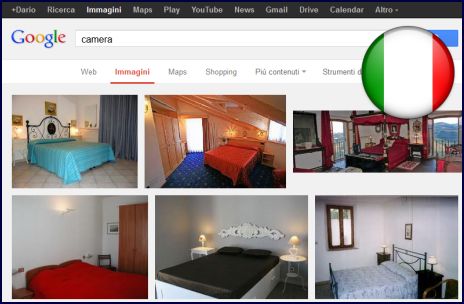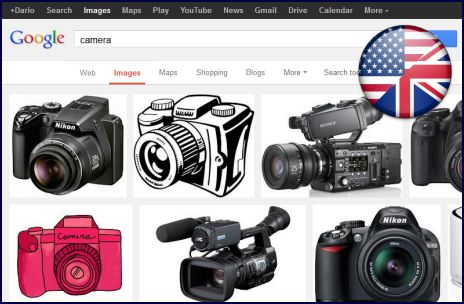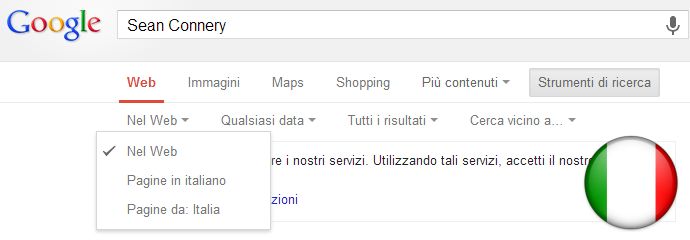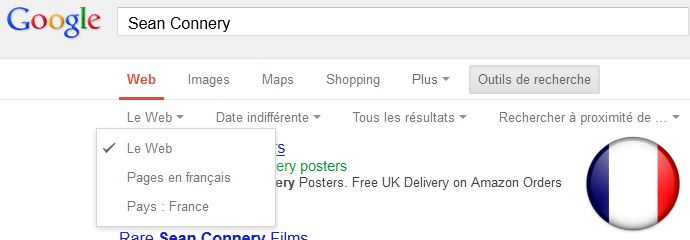In which language I am looking for?
One of the major problems of many big brands of the web is that, even if they have a global approach, they remain fundamentally American, that is, they have a mono-cultural perspective. Someone might argue that if there is a country of a thousand cultures, these are precisely the United States of America, but in fact the inclusion of many different cultures within the American society often ends up diluting the differences and standardize the behavior rather than enrich the diversity of the stars-and-stripes society. Here then, although companies like Google, for example, are present in virtually all countries of the world and are proposed in various languages, their vision of the linguistic variety is rather primitive.
Let us just consider Google. Of course you can do searches on the web by using different languages, but the final result is unsatisfactory when it is not clear which language the term belongs to. The same term, in fact, might have different meanings in different languages and if you do not have a way to explicitly specify the language of the search criteria, you end up getting results that have nothing to do with what you are looking for. For example, in Italian the word “camera” refers to a room, while in English it means photographic device. These are obviously two very different objects, but how do I tell Google about that?


There are also concepts, at times, which have the same meaning in all languages, such as the name of an actor, “Sean Connery”, or a service name, “Facebook Reader”, but how do I tell Google I want only articles in a specific language? I cannot do it directly in the search criteria, and often I can not even do that in the basic research, using the “Search Tools”: I have to go to the advanced search, relegated to the bottom left of the page. That is really impractical, especially if you often search in different languages.
And here is where it comes into play the American culture, little accustomed to multilingualism. In the world, in fact, there are more and more people who speak or at least are able to read multiple languages, so now it is common to search looking for articles in this or that language, if not in both. In many cases it is not so strange having to search for items in a language other than our own, a language so that usually does not have any relationship with our country. Many systems, instead, try to deduce what is the reference language through the localization of the applicant or the settings of the device you are using. In fact, in which language I wish to have the results often depends on what I am looking for or from what point of view I’m interested in, so it continuously changes.


Always on Google, if I tried to look for a picture so I cannot even specify the language in the advanced research because there is not such a feature. So if I type “compressa” I could get a series of images of medicinal pills if the term is interpreted in the Italian language, or rolls of gauze in case the language is Portuguese. Similarly typing “latte” and interpreting it in Italian, I could get pictures of bottles and packages of milk, while the same criteria in German generate images of cups of latte macchiato or cappuccino, or wood shingles, such as that of the high jump.
Wanting to address this problem in Google, we may think of two mechanisms based on the same language codes used in HTML, that is, it for Italian, fr for French, en-US for U.S. English, en-UK for British, and so on. For example, to search for rooms I could use it:camera whereas en:camera would be used to indicate photographic cameras. Similarly, to find all the items on Facebook Reader in English and French I could write something like facebook reader >en,fr.
Whatever technique you are using is in fact irrelevant, however: what matters is that these big companies understand that if they want to operate on a global market, they must understand that it is a multi-lingual market, in which the same person can communicate in more languages at the same time with different people, that is, systems must be able to adapt and understand which language of communication is being used as this often impacts the mode of communication and contents.




















Please use Facebook only for brief comments.
For longer comments you should use the text area at the bottom of the page.
Facebook Comments